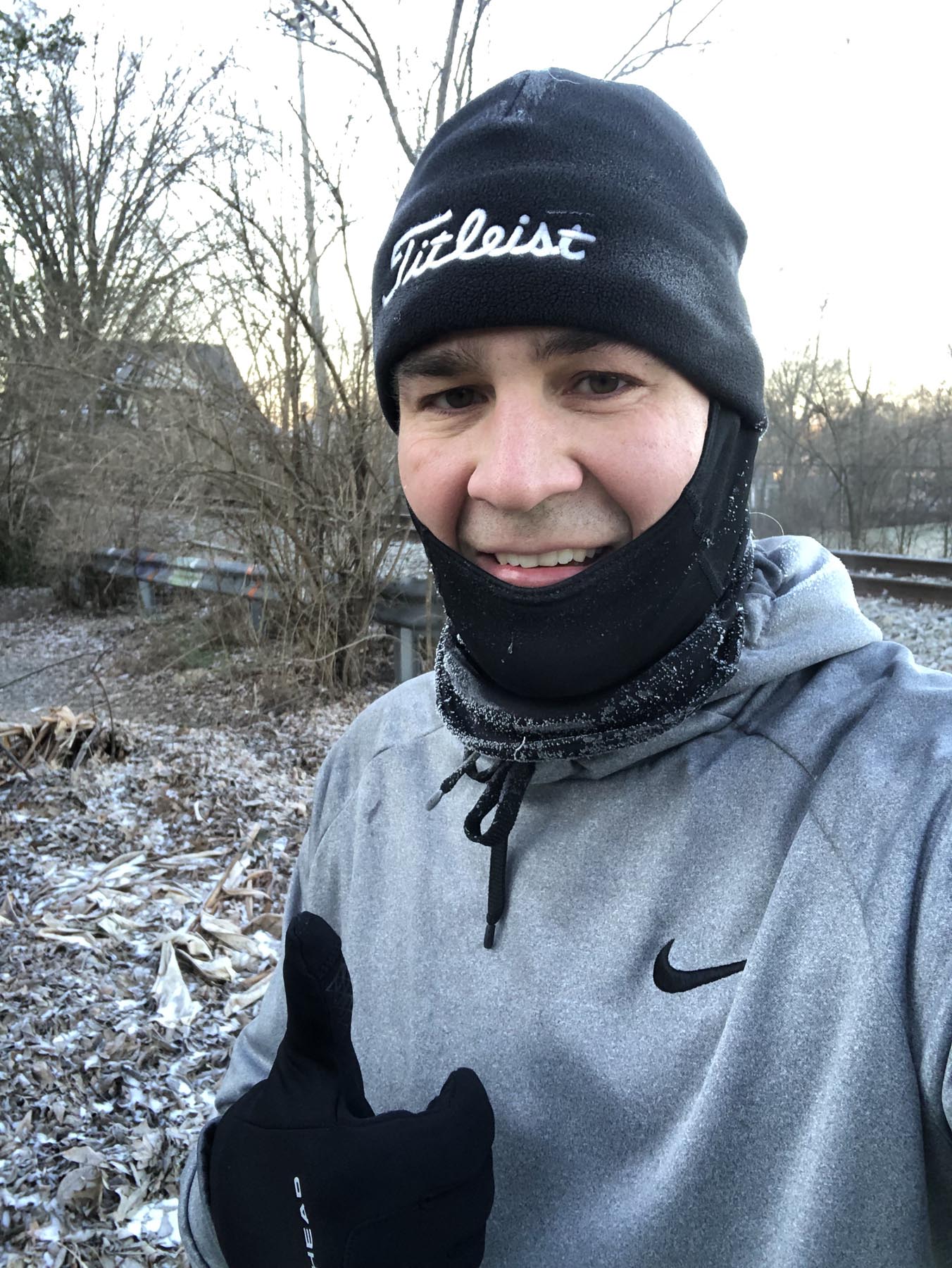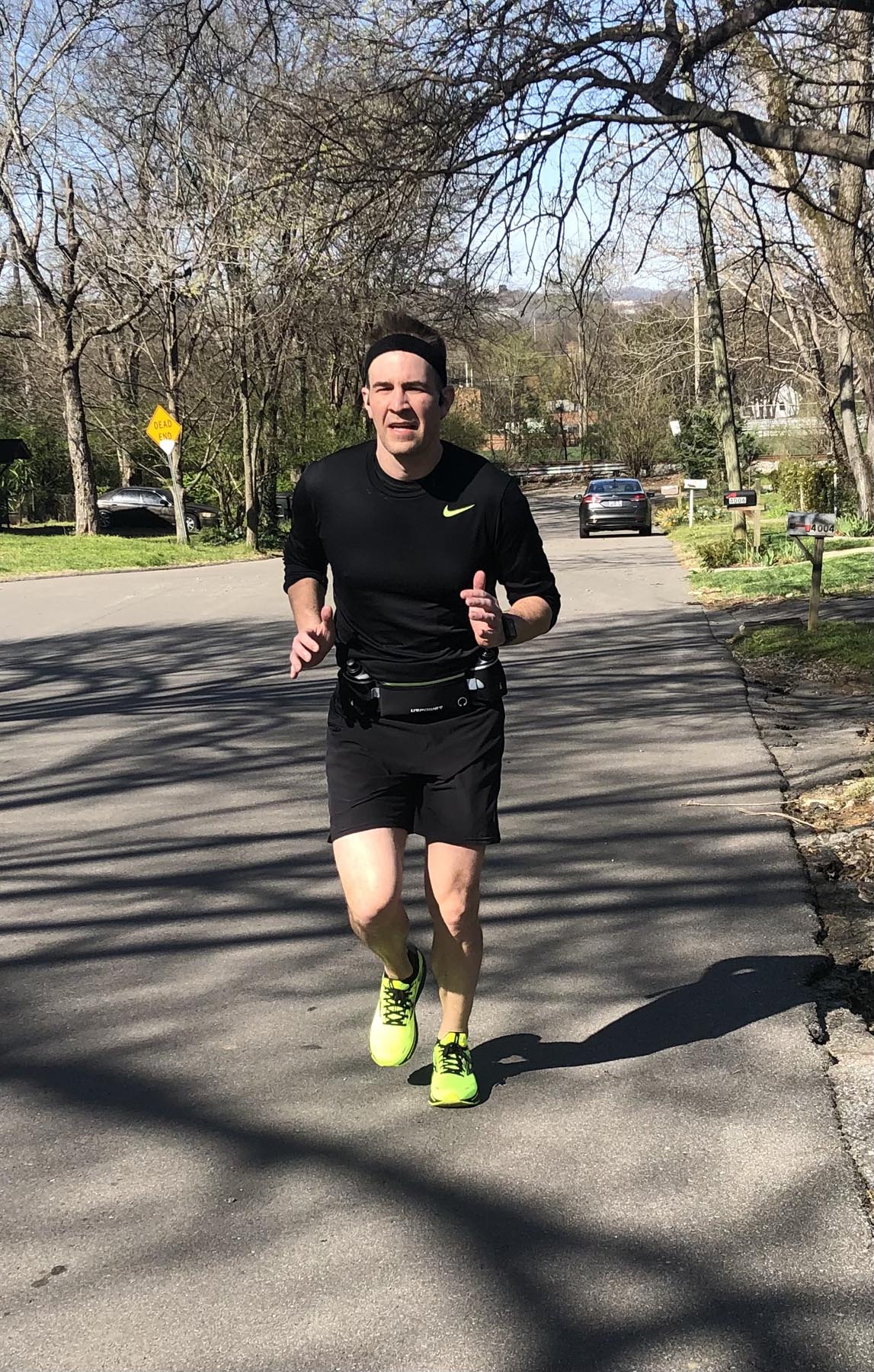Mondays and Wednesdays are for tempo runs. Tuesdays and Thursdays are for lower-body strength training. Fridays are for shakeout, fun runs leading up to Saturdays’ long-distance runs. And Sundays are well-deserved rest days.
In between advising student-athletes, that’s been the schedule for Nate Bell ’05 the last three months while training for his first marathon, now just less than three weeks away.
Bell, director of student services at Vanderbilt University, will be participating in the St. Jude Rock ‘n’ Roll Running Series marathon on April 23 in Nashville, Tennessee.

After completing three half-marathons before the pandemic hit in 2020, Bell decided it was time to push himself further and accomplish something as big as running 26.2 miles before he turns 40.
“I feel like all of us had those moments where we rethought our lives during COVID, and asked questions like, what are those things that motivate us? What longer-term goals can we set and work toward,” recalled Bell, a psychology major and history minor originally from Fort Wayne, Indiana.
“I was sitting in a Discount Tire, having my tires changed, and I thought, ‘I’m going to run a marathon. I’m going to do it,’” he said. “There was nothing significant that happened leading up to that moment. I just needed something to shoot for, something I’d never done that was going to stretch me. That same day, I signed up, told my wife and two girls, ‘I’m running a marathon,’ and started training.”
Bell talks about his work at Vanderbilt, what his marathon training has been like and what lessons he’s pulled from Wabash College that help keep him motivated.
Q: You joined the Vanderbilt Student Services staff in August 2009. What are your responsibilities as the director of student services?
I’m involved with anything that’s going on in the student-athletes’ world academically, from getting extra assistance from a tutoring standpoint and organizing a class schedule to developing important skills and study habits. Most of our time is spent with freshmen and sophomores, getting them acclimated to campus and Vanderbilt’s rigorous educational requirements and expectations. When you’re at a new place, away from family, and part of this new team that’s traveling and depending on you, there are a lot of balls in the air all at once to juggle. Our office helps them manage all those items through their four years here, and prepares them for life after graduation.
Q: You were a student-athlete yourself at Wabash, being a four-year member of the basketball team. When did running start to come into play?
It’s funny because if you would have told me when I was at Wabash that I was going to do long-distance running, I would have said you were nuts. It just was not in my DNA. As soon as I was done playing basketball, I went through this weird transitional phase that all athletes go through. I was so used to having these workouts designed for me, knowing exactly what I would be doing every week, and then all of a sudden, I was done and on my own.
I had to figure it out myself, and I felt like designing a workout would take too much time. That was a barrier for me, so I thought running was the easiest way to stay in shape. I just had to go out there and do it. I started running down Jennison and other streets in Crawfordsville, two to three miles at a time. It felt refreshing, so I stayed with it and kept pushing myself to run more miles through graduate school and until I got to Nashville and I ran my first half-marathon in 2013.
Q: Talk about your marathon training. Did you figure out a schedule on your own or did you have help?
The Peloton has a marathon training app, and that’s been a blessing. I have a trainer in my ear throughout my tempo marathon runs, telling me when to slow down and when to speed up. I needed someone to help guide me through the process, because before I didn’t understand exactly how my body was working, how to pace myself, and when it was right to really push and go faster or longer.
Q: What keeps you motivated?

There are some runs that are harder than others, like the 5 a.m. ones. There’s no one out, and I’m just trying not to trip over anything because it’s still dark. It can get lonely, but there’s something in my mind that tells me: ‘You can’t quit. You can’t miss this. You’ve come too far.’ My family has made many scarifies to put me in this position — there are times where I am gone for hours, just running. They’ve been cheering me on all along the way and want to see me cross the finish line. I’m not going to let them down.
Q: What’s your goal for the marathon?
I’ve adjusted my expectations since training started — I don’t know yet if that’s a good thing or not. I believe I can break four hours, and that would be a nine-minute mile average. It may be ambitious, but I think we need those goals in life. If I run it, and I don’t hit that time, that’s OK. Just running a marathon is an incredible accomplishment.
Q: What skills or experiences do you find yourself pulling from as a Wabash student and alumnus that has helped you and impacted your training for this marathon?
Wabash has connections to everything, doesn’t it? Wabash disciplined me, and taught me how to be prepared for challenges and uncomfortable situations in life. Sometimes, we let fear dictate our decision-making. It’s the fear itself that is the scariest part, rather than the activity because of our thoughts and perceptions about it.
But because of Wabash, and those lessons I learned in my psychology classes and being a part of the basketball team under with Coach (Mac) Petty, I push myself to look past that and bust through those fears. There are times when it’s really hard, but that’s where growth happens. You have to make sure you don’t shy away from those challenging moments. And that’s what I’m trying to do here. Running a marathon is a huge, audacious goal and I don’t know if I can do it, but that’s not going to stop me from trying.